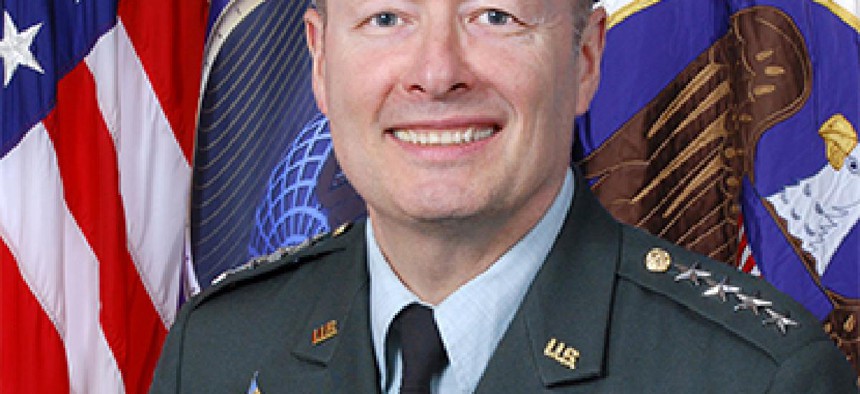Senate questions NSA head

Gen. Keith Alexander answers questions about information gathering, security clearance process.

Gen. Keith Alexander tells senators that Prism whistleblower had "great skills" in his job, but security-clearance process needs a reassessment. (File photo)
Senators took advantage of their first opportunity to publicly question Gen. Keith Alexander, head of the National Security Agency and head of the U.S. Cyber Command, in the wake of disclosures about domestic surveillance made by a relatively low-level contractor in the press.
While much of the questioning focused on whether the information sought by NSA was legally obtained, and if it was instrumental in deterring terrorist threats, senators also wondered how the source of the disclosures, Edward Snowden, a 29-year-old high-school dropout with a general-equivalency diploma wound up with a security clearance working in IT for the Central Intelligence Agency and then as an employee of Booz Allen Hamilton, with access to top secret material.
"I would point out, in the IT arena, some of these folks have tremendous skills to operate networks. That was [Snowden's] job for the most part, from 2009, 2010, was an IT assistant administrator within those networks. He had great skills in that area," Alexander said. At the same time, Alexander allowed that he had "great concerns" over the access that Snowden had, and the process that cleared him for that access. "We do have to go back and look at these processes, the oversight, where they went wrong, and how we fix those."
Separately, Alexander discussed the challenges of recruiting, training, and retaining quality personnel. He confirmed that civilian employees of cyber command will be furloughed for 11 days as a result of budget cuts under sequestration. "That has a significant impact on us," Alexander said. "It goes right back to, how do you hire good people and then furlough them?"
Alexander discussed efforts to establish standardized training for military personnel looking to specialize in cybersecurity, and efforts to recruit qualified professionals on the civilian side of NSA. Incentive pay for military personnel is not currently a part of the training program, but Alexander said it is "something we're looking at," comparing to the current system of offering incentive pay for personnel who learn foreign languages to expand the scope of their duties. Alexander also said that he looked forward to "greater scrutiny of what I am getting with contract support."
Rand Beers, acting deputy secretary of the Department of Homeland Security, testified that he was looking to hire another 600 individuals to augment the current 1,500-person cyber workforce. The skills required are in great demand, and DHS was looking for increased funding to recruit and retain qualified personnel. He mentioned "comparable pay to what NSA is able to offer its workforce," as a measure that would give his agency a leg up in attracting good candidates.
Ostensibly, the purpose of the hearing was to discuss the $14 billion in total cybersecurity allocations sought by President Obama in this fiscal 2014 budget, across NSA, DHS, the Department of Justice and the National Institute of Standards and Technology. However, the bulk of the questions were directed at Alexander, and focused on the disclosures of the NSA's Prism program that reportedly analyzes data gleaned from commercial web providers under the authority of the Foreign Intelligence Surveillance Act, and a program to receive mobile telephone metadata, under the Patriot Act.
NEXT STORY: NIST reports progress on cyber framework



